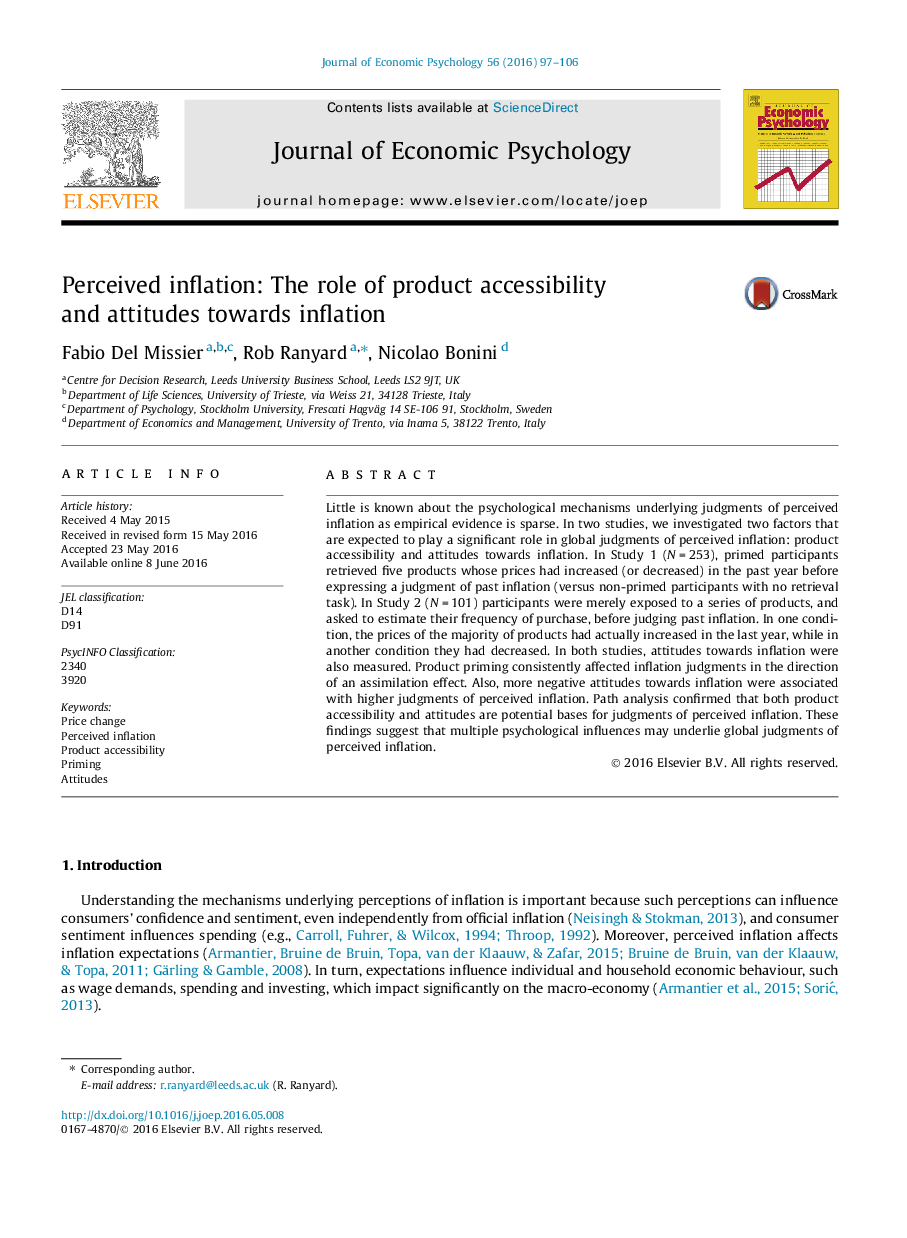| Article ID | Journal | Published Year | Pages | File Type |
|---|---|---|---|---|
| 7244220 | Journal of Economic Psychology | 2016 | 10 Pages |
Abstract
Little is known about the psychological mechanisms underlying judgments of perceived inflation as empirical evidence is sparse. In two studies, we investigated two factors that are expected to play a significant role in global judgments of perceived inflation: product accessibility and attitudes towards inflation. In Study 1 (NÂ =Â 253), primed participants retrieved five products whose prices had increased (or decreased) in the past year before expressing a judgment of past inflation (versus non-primed participants with no retrieval task). In Study 2 (NÂ =Â 101) participants were merely exposed to a series of products, and asked to estimate their frequency of purchase, before judging past inflation. In one condition, the prices of the majority of products had actually increased in the last year, while in another condition they had decreased. In both studies, attitudes towards inflation were also measured. Product priming consistently affected inflation judgments in the direction of an assimilation effect. Also, more negative attitudes towards inflation were associated with higher judgments of perceived inflation. Path analysis confirmed that both product accessibility and attitudes are potential bases for judgments of perceived inflation. These findings suggest that multiple psychological influences may underlie global judgments of perceived inflation.
Related Topics
Social Sciences and Humanities
Business, Management and Accounting
Marketing
Authors
Fabio Del Missier, Rob Ranyard, Nicolao Bonini,
